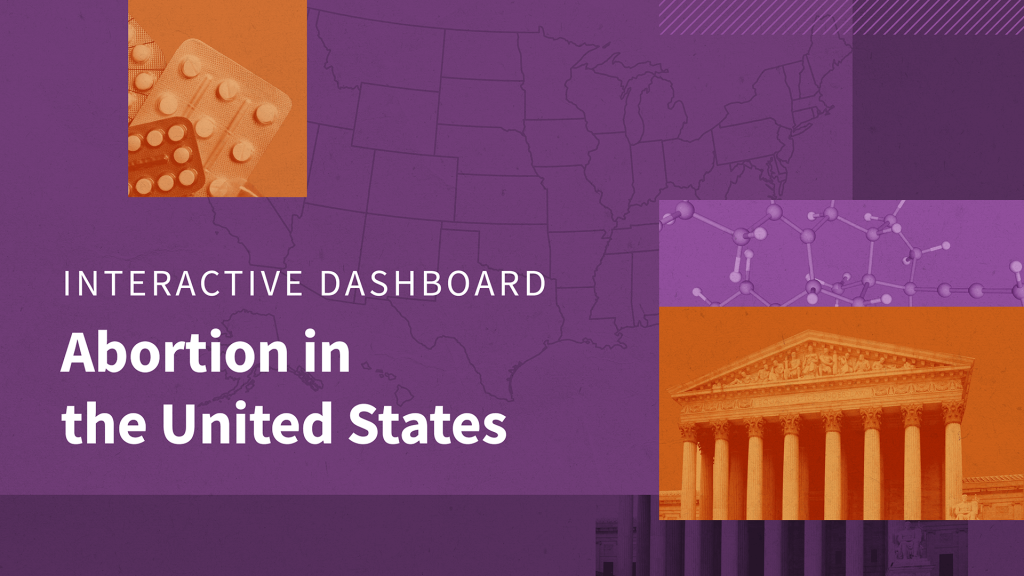Key Facts on Abortion in the United States
This issue brief answers some key questions about abortion in the United States and presents data collected before and new data that has been published since the overturn of Roe v. Wade.
The independent source for health policy research, polling, and news.
KFF’s policy research provides facts and analysis on a wide range of policy issues and public programs.
KFF designs, conducts and analyzes original public opinion and survey research on Americans’ attitudes, knowledge, and experiences with the health care system to help amplify the public’s voice in major national debates.
KFF Health News is a national newsroom that produces in-depth journalism about health issues and is one of the organization’s core operating programs.
The Abortion in the United States Dashboard is an ongoing research project tracking state abortion policies and litigation following the overturning of Roe v. Wade. It features a continuously-updated map tracking the status of abortion bans across the United States, as well as briefs on topics such as medication abortion, insurance coverage, ballot measures, legal developments, and racial and ethnic disparities. It also offers a jumping off point to the latest national and state-specific abortion policies and statistics. Visit the Dashboard →
This issue brief answers some key questions about abortion in the United States and presents data collected before and new data that has been published since the overturn of Roe v. Wade.
The Abortion in the U.S. Dashboard is an ongoing research project tracking state abortion policies and litigation following the overturning of Roe v. Wade.
While the Affordable Care Act’s enhanced premium tax credits expired at the end of 2025, there is no absolute drop-dead date for extending them. An extension could happen even after the deadline to sign up for coverage and be made retroactive to January 1. Open enrollment could also be extended to allow people time to change their plans or allow new people to sign up. ACA enrollees would welcome premium relief whenever it comes.
This volume shares updates from the most recent CDC advisory panel meeting, changes to the CDC webpage on autism and vaccines, and polling on trust in news organizations. Additionally, it shares recent developments in AI and social media policy and new KFF poll findings about perceptions of mifepristone’s safety and prevalence.
This KFF Health Tracking Poll finds that many, including women of reproductive age, remain unfamiliar with key facts about mifepristone. Fewer than half of all adults say they believe abortion pills are safe now, compared to over half of all adults two years ago. This poll explores awareness and perception of the recent FDA review of the medication, and support for policies aimed at restricting it.
This brief includes data on pregnancy and birth outcomes by race and ethnicity, describes the underlying factors driving disparities, and discusses current policies affecting maternal and infant health disparities.
This policy tracker documents
exceptions in each state’s most restrictive gestational limit or total ban.
This volume shares findings from the KFF/The Washington Post Survey of Parents about exposure to and trust in children’s health content on social media, along with misleading claims following the approval of a generic version of mifepristone, reports of autism possibly being added to the Vaccine Injury Compensation Program, and patients using AI chatbots to interpret lab results.
This policy watch explains how abortion coverage works in ACA Marketplace plans, state actions to include or exclude abortion coverage in these plans, and the potential impact if Congress bans abortion coverage in all Marketplace plans.
© 2026 KFF
